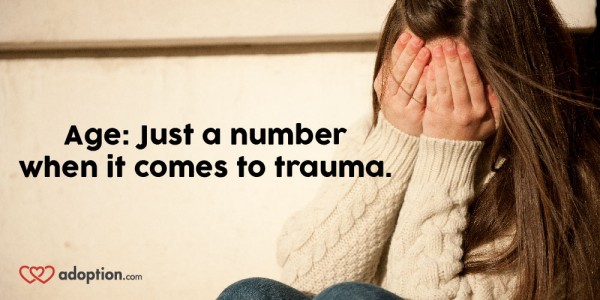The majority of children in foster care have experienced some sort of trauma. It could be neglect, various forms of abuse, death of a caregiver, exposure to drugs, or even just the experience of being taken away from the familiar and entering the foster care system.
Trauma has a profound affect on the brain. Recently, an article was published on Common Heath which included the results of a study done on brain development, testing Romanian children raised in an orphanage and those who were raised in a home environment. MRIs were performed on children between the ages of 8-10 years old, and researchers found that those raised in an institutional setting had much smaller brains.
Psychologist Dr. Stuart Ablon, a specialist in working with kids with behavioral issues, told Common Health, “Kids who grow up in families where they are maltreated and then placed in bad foster care look just like our kids in Romania. When people say, ‘Who cares about kids in Romania?’ It’s because it is a model system for what happens in the United States every day.”
This study provides proof that trauma affects development. Children who have experienced trauma display behavioral issues because their brains have not developed fully to the point of other children their age. What is often perceived as a conscious choice to act out may actually be the result of under-development in the brain that causes an inability to cope with frustration or change.
In foster care training, our instructors explained this by describing age as a puzzle. This puzzle includes various pieces: chronological age, emotional age, developmental age, and experiential age. These ages may range drastically for children who have undergone traumatic events.
I have seen this first-hand in my children, who entered the foster care system after experiencing trauma early in their childhood. Their chronological age is much larger than their emotional or developmental age, but it is much smaller than the age of their experience.
While this may sound and feel very discouraging, hope is not lost for these children. Albon states that these missing skills can be learned when children have the opportunity to practice them repeatedly in a safe environment. This is where foster parents, adoptive parents, and foster care workers come into play.
I must adjust my expectations of my children by considering all the pieces of their age puzzle, not merely set my expectations based on their chronological age–a number that is meaningless in reality. Additionally, I must understand that when my children respond in a way that seems to be an overreaction to a frustrating situation, it is likely that they do not have the skills to process their feelings in a different way. This is an opportunity to help practice better coping mechanisms.
I would not expect my 4-year-old to be able to spell words my 10-year-old can because he does not have the skills. Likewise, my trauma-affected 10-year-old cannot be expected to have the same coping skills as a 10-year-old when his emotional/developmental age is about four years delayed.
In order to catch up developmentally, children need trauma-informed, trusting adults to form lasting relationships where they have the safety to practice these essential skills. Children who have survived trauma must have a chance to gain back some of what was lost when trauma invaded their lives and hindered their development.

